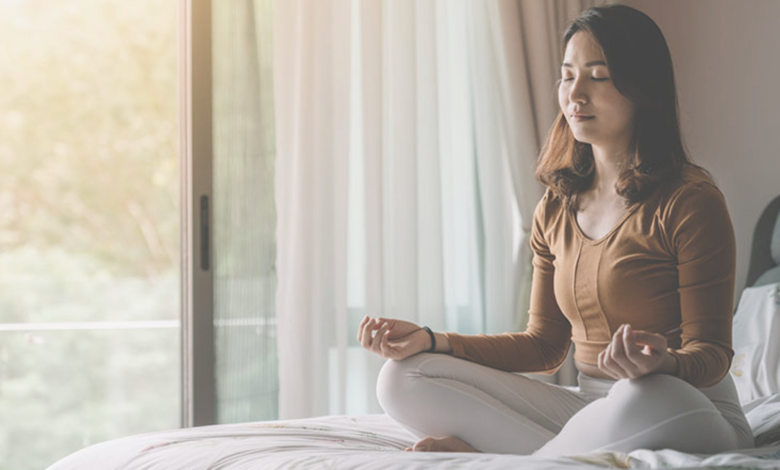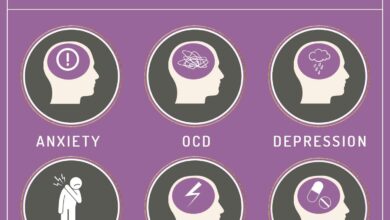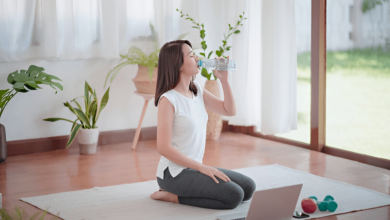
In today’s demanding world, chronic stress has become a silent epidemic, affecting mental clarity, productivity, and overall health. The good news? Research proves that a stress-free routine isn’t just a luxury it’s a science-backed necessity for sustainable well-being. Neuroscientists and psychologists agree that intentional daily habits can rewire the brain’s stress response, lowering cortisol levels while enhancing resilience. Whether you’re juggling career pressures, academic deadlines, or personal responsibilities, this guide unveils evidence-based strategies to transform chaos into calm.
The foundation of a stress-free routine lies in understanding how Stress-Free Routine operates biologically and behaviorally. Studies from institutions like Harvard and Stanford reveal that consistent sleep, mindful movement, and strategic time management don’t just reduce anxiety they boost cognitive performance and emotional balance. By adopting these principles, you’re not merely coping with stress; you’re designing a lifestyle that prevents burnout before it begins.
How to Build a Stress-Free Routine Backed by Science
Understanding Stress and Its Impact
Stress is the body’s natural response to challenges, but chronic stress can lead to serious health issues like anxiety, insomnia, and weakened immunity. According to the American Psychological Association, prolonged stress disrupts cognitive function and emotional stability. Understanding how stress works is the first step in managing it effectively. The key to a stress-free routine lies in recognizing stressors and implementing countermeasures. Scientific studies emphasize the importance of consistency, sleep, and mindfulness in reducing cortisol levels the primary stress hormone. By adopting small, sustainable changes, you can rewire your brain to handle pressure better.
The Science-Backed Elements of a Stress-Free Routine
Prioritize Sleep for Mental Restoration
Sleep is the foundation of a Stress-Free Routine lifestyle. Research from Harvard Medical School confirms that poor sleep increases emotional reactivity and decreases problem-solving abilities. Aim for 7-9 hours of quality sleep by maintaining a consistent bedtime, reducing screen time before bed, and creating a dark, cool sleep environment.
Incorporate Mindfulness and Meditation
Studies published in JAMA Internal Medicine reveal that mindfulness meditation reduces stress by 30% in just eight weeks. Techniques like deep breathing, guided meditation, and progressive muscle relaxation activate the parasympathetic nervous system, promoting calmness. Even 10 minutes daily can make a significant difference.
Optimize Your Daily Schedule with Time Blocking
Overcommitment leads to burnout. Time blocking a method endorsed by productivity experts helps allocate specific periods for tasks, preventing overwhelm. Stanford University research suggests that focused work intervals with breaks (like the Pomodoro Technique) enhance efficiency while reducing mental fatigue.
Engage in Regular Physical Activity
Exercise releases endorphins, natural mood lifters that combat stress. The Mayo Clinic recommends at least 30 minutes of moderate activity daily, whether it’s walking, yoga, or strength training. Movement also lowers cortisol levels, improving emotional resilience.
Nourish Your Body with a Balanced Diet
Nutrition plays a crucial role in stress management. Foods rich in omega-3s (like salmon), magnesium (like spinach), and probiotics (like yogurt) support brain health. Avoid excessive caffeine and sugar, which spike cortisol and lead to energy crashes.
Foster Strong Social Connections
Human interaction reduces stress hormones. A study in Psychological Science found that spending time with loved ones increases oxytocin, a hormone that counteracts stress. Prioritize meaningful conversations, even if briefly, to maintain emotional balance.
Practice Digital Detoxification
Constant exposure to digital devices overwhelms the nervous system, increasing stress and reducing mental clarity. Research shows that unplugging for even short periods can lower anxiety, improve sleep, and boost productivity. Start by setting daily tech-free blocks such as during meals or before bed and turning off non-essential notifications. Replace screen time with mindful activities like reading, nature walks, or face-to-face conversations to restore balance and focus.
Learn to Say No and Delegate Tasks
Overloading yourself increases stress. Psychological studies show that setting boundaries improves self-esteem and reduces burnout. Delegate tasks when possible and focus on priorities.
Future Aspects of Building a Stress-Free Routine
AI-Powered Personalized Stress Management
Advancements in artificial intelligence will enable hyper-personalized routines based on biometric data, sleep patterns, and stress triggers. Wearable devices and apps will analyze real-time cortisol levels, heart rate variability, and brainwave activity to recommend tailored interventions such as optimal break times, meditation prompts, or dietary adjustments.
Neurofeedback and Brain Training
Emerging neurotechnology, like EEG headbands and brainwave monitoring, will allow users to train their minds for stress resilience. Biofeedback techniques will help individuals recognize stress responses and consciously shift into calmer states through guided exercises backed by clinical research.
Workplace Integration of Stress-Reduction Science
Companies will increasingly adopt science-backed stress-free routines as part of corporate wellness programs. Flexible schedules, mandatory mental health breaks, and in-office mindfulness pods will become standard, reducing burnout and boosting productivity.
Genetic and Microbiome-Based Stress Solutions
Future research will explore how genetics and gut health influence stress susceptibility. Personalized nutrition plans and probiotic therapies may be prescribed to optimize mental well-being based on individual microbiome profiles.
Virtual Reality (VR) for Immersive Relaxation
VR meditation and nature-simulated environments will provide instant stress relief by transporting users to calming virtual spaces. Studies already show that VR therapy reduces anxiety future applications will make it a mainstream tool for daily relaxation.
Smart Homes Designed for Stress Reduction
Homes of the future will feature ambient intelligence—lighting, temperature, and soundscapes that automatically adjust to promote relaxation. AI-driven systems will curate calming environments based on real-time stress indicators.
Expansion of Digital Detox Culture
As screen fatigue grows, society will shift toward intentional tech usage. “Digital mindfulness” apps will enforce screen-time limits, while offline retreats and low-tech workspaces will gain popularity.
Longevity Science and Stress Resistance
Anti-aging research will intersect with stress management, revealing how chronic stress accelerates cellular aging. Future routines may include telomere-supporting habits like targeted supplements and circadian rhythm optimization.
Read More: The Rise of Microlearning: Is It Replacing Traditional Classes?
Conclusion
Building a stress-free routine isn’t about eliminating all challenges it’s about cultivating resilience and balance in the face of life’s inevitable pressures. By incorporating science-backed strategies like quality sleep, mindful movement, and intentional time management, you create a foundation that buffers stress rather than amplifies it. Remember, consistency matters more than perfection; small, daily habits compound into long-term well-being. As you refine your routine, listen to your body and mind, adjusting what works best for your unique needs.
Ultimately, a stress-free routine is an act of self-respect one that honors your mental and physical health in a demanding world. The journey toward sustainable calm begins with a single step, whether it’s a five-minute meditation or a digital detox before bed. With patience and persistence, you’ll not only reduce Stress-Free Routine but also unlock greater focus, energy, and joy in your daily life. Start today, and let science guide you toward a more peaceful, empowered tomorrow.
FAQs
How long does it take to see results from a stress-free routine?
Most people notice improvements within 2-4 weeks of consistent practice, but long-term benefits deepen over months.
Can a busy person realistically maintain this routine?
Yes start with small steps like 5-minute meditations or short walks. Even minimal efforts reduce stress significantly.
Does diet really affect stress levels?
Absolutely. Nutrient deficiencies worsen stress, while balanced meals stabilize mood and energy.
What’s the quickest way to calm stress in the moment?
Deep breathing (4-7-8 technique) or a brief walk can lower stress hormones within minutes.
How do I stay motivated to stick to this routine?
Track progress, set reminders, and remind yourself of the benefits less anxiety, better focus, and improved health.











